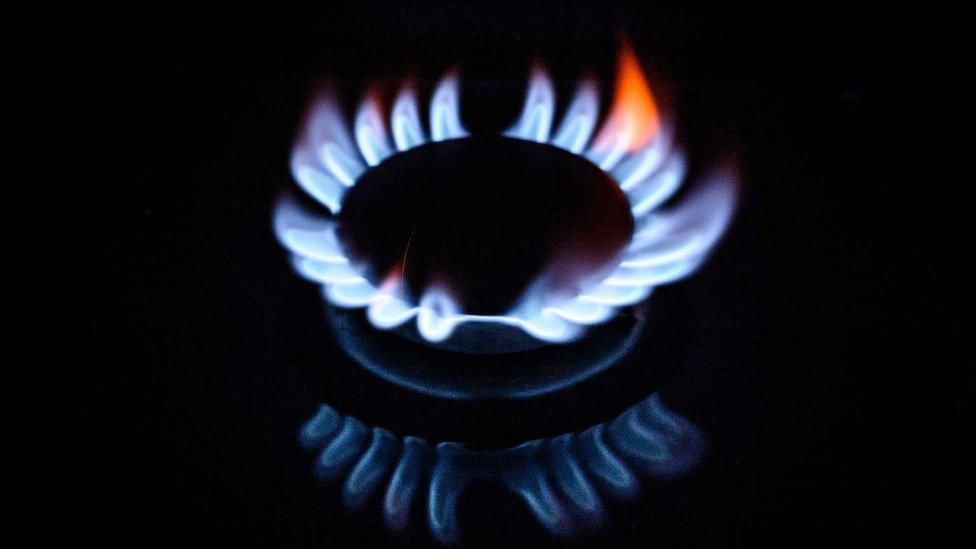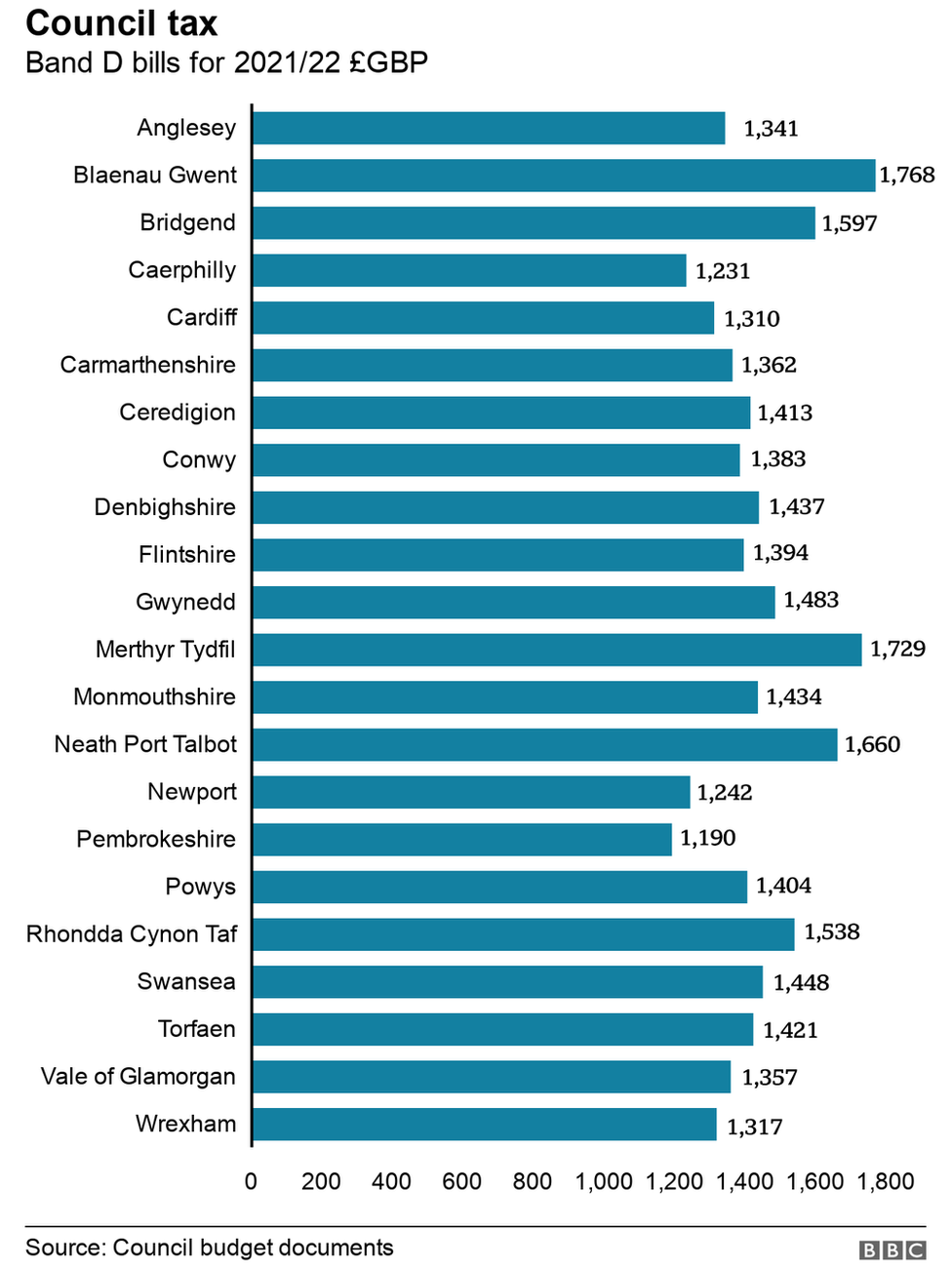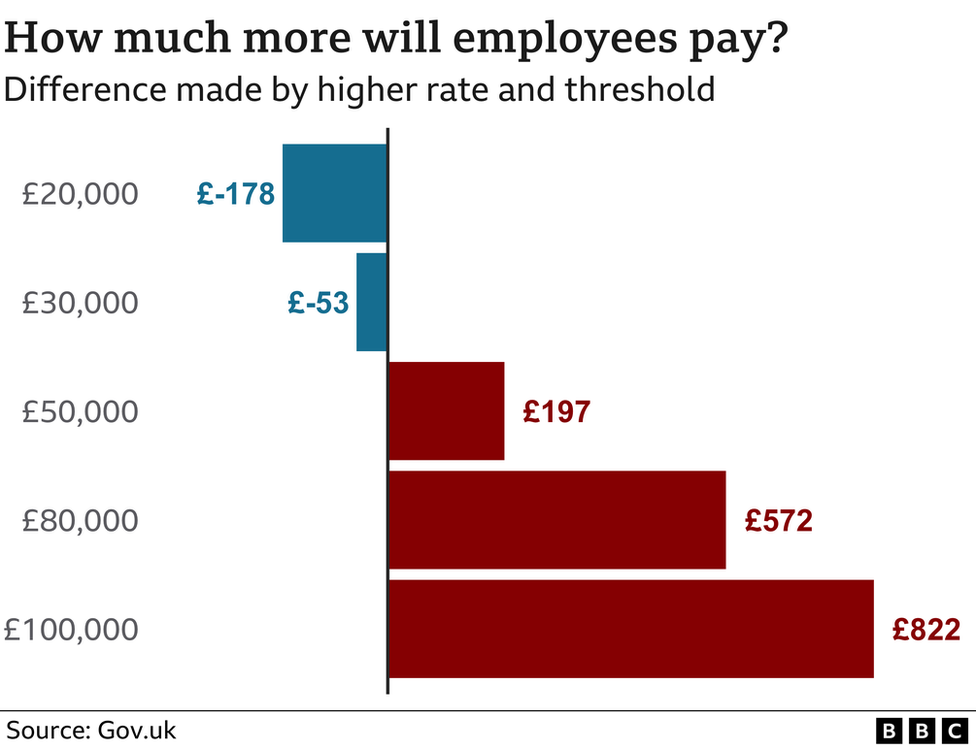Cost of living in Wales: What financial help is there?
- Published
- comments

Households across Wales are set to be worse off because of a combination of costs rising
A rise in National Insurance payments has hit working people's pay packets this month.
Food costs continue to climb, council tax has increased and average energy bills have risen by £693 a year.
Cardiff University has warned of a squeeze on living standards "on a scale not seen in the UK for decades".
The Welsh government said it was doing "all it can to help Welsh families", but with households expected to be at least £600 worse off this year - what support is available?
Funding schemes are available from both the Welsh and UK governments, aimed at taking pressure off families as the cost of essential bills continues to increase.
Low income households
Households with the lowest incomes in Wales can receive a payment of £350, with some entitled to further financial support from the Welsh government's Discretionary Assistance Fund, external.
Through the scheme, 75% of all homes will be eligible for support - with nearly twice as much going to households in the bottom half of the income chart, and three times as much to those in the bottom fifth.
Essentially, it provides two types of grants that people do not need to pay back.
An emergency assistance payment is for essential costs, such as food, gas, electricity, clothing or emergency travel if you are experiencing extreme financial hardship, have lost your job or have applied for benefits and are waiting for your first payment.
There is also an individual assistance payment to help you or someone you care for live independently in their home or a property that you or they are moving into.
It can be used for items such as a fridge, cooker, washing machine, beds, sofas and chairs.
Household energy costs

Gas and electricity bills have risen significantly for households across Wales
The average energy bill rise of £693 a year has kicked in this month, and is equivalent to about 12% of the poorest households' disposable income.
UK government schemes include a £200 discount on electricity bills, external in the autumn, which will be repaid by customers in instalments over five years.
Council tax

The figures do not include charges for police forces and town or community councils

Council tax bills are going up by at least twice the rate of inflation across Wales.
The increases range from 2.65% in Rhondda Cynon Taf to 6.95% in Wrexham, although the north-eastern county still charges less than most authorities in Wales.
Those living in households under bands A to D will be given £150 to help with the cost of living, with those eligible for council tax reductions living in all other bands, also due to get the payment.
The Welsh government also said it has provided more than £206m in its budget to continue the Local Government Hardship Fund.
This is aimed at ensuring the financial impact of the pandemic on local government will not be passed on to council taxpayers.
National Insurance

Changes to National Insurance are being brought - however, while some people will pay more, others will pay less.
Prime Minister Boris Johnson described it as "necessary, fair and responsible", adding that it would "provide the health and care system with the long term funding it needs as we recover from the pandemic".
These changes mean anyone earning less than about £34,000 will pay less NI than they did last year, while anybody earning more than that will pay more.
An employee on £20,000 a year will pay £178 less NI in 2022-23 than they did the previous year.
Someone on £50,000 will pay £197 more.
Experts urged people to check their status as the new tax year starts, to make sure they are paying the correct amount.
Fuel and food costs

The cost of items we put in our shopping basket have also risen
Ronald Kers, the boss of food firm 2 Sisters, said the cost of food could rise by up to 15% this year.
The jump in oil prices since the beginning of the war in Ukraine also pushed up fuel prices, and the cost of unleaded petrol has hit record highs.
The Welsh government said it was doing all it could "with the resource and powers available" to respond to "an unprecedented cost-of-living crisis".
A spokesperson added that the Household Support Fund offers a "suite of measures," including a £200 one-time payment to help people struggling with winter fuel costs, and a £150 cost-of-living payment to households in Council Tax bands D-E.
Check entitlements
Money Saving Expert has a 10-minute benefits check, external allowing people to see what they are entitled to.
Rosie Hamilton from the financial advice company said: "The main thing to remember is benefits are not just for the unemployed.
"Even someone earning a high salary could be eligible for some help."
Up to 7.5 million households across the UK are missing out on £15bn a year of means-tested benefits, UK government figures show.
This is something echoed by Wales' Minister for Social Justice Jane Hutt, who said: "Families and households are under strain and we want to make sure people are supported.
"We're aware that not everyone who is eligible for support is coming forward, a fact our analysis reflects.
"Our 'claim what's yours' campaign, external seeks to raise awareness of the different avenues of support and we encourage everyone who needs it to make the most of what is available."
- Published11 March 2021

- Published11 March 2022

- Published14 March 2022
